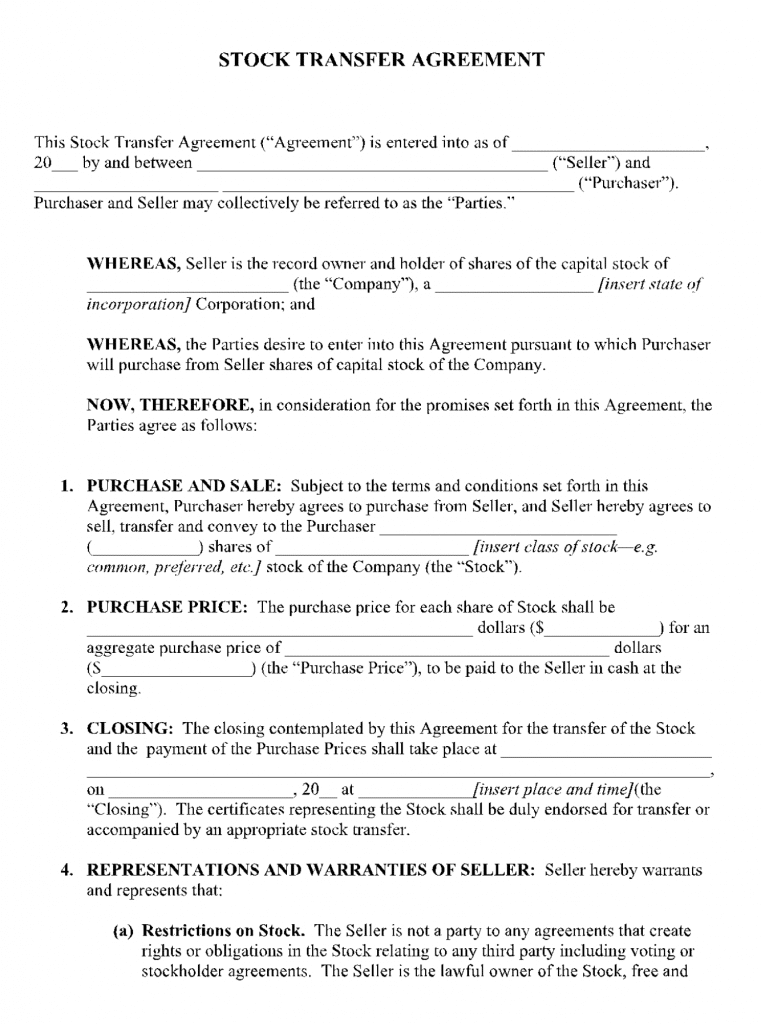Shares Transfer Agreement Template
The Share Transfer Agreement is a standard document required for transferring shares in a company from one party to another. The agreement outlines the particulars of the transferor to the transferee. The document should also include the number of shares to be transferred and the cost or value of each share etc.

How To Use A Transfer of Shares Agreement?
This agreement should be used by a party who intends to transfer their shares in a company to another party. The party transferring its shares could be a company, a person, or any other organization.
How To Write Stock Transfer Agreement?
The following are the core elements of a share transfer agreement :
- Definition of transfer of shares
- Definition of consideration of shares
- Date of transfer
- Purchase price
- Payment
- Liability
- Creditors
- Representations and warranties
Cover page
This is the first section of the agreement proposal. It includes basic information like your company name, transferor, and transferee name.
Transfer of shares & Price
In this section, you mention the number of shares that are transferred to the transferee along with the voting rights, dividends, and capital.
Warranties and indemnities
Provide details on the transfer of shares with respect to agreement warrant and agreement indemnities, for instance - mention the true owner of the shares, rights, and obligations, powers, approvals, etc.
Signature
This is the final section of the proposal. Here, both parties intend to sign the document and enter into a final written agreement.
FAQ About Our Share Transfer Contract Template
What documents are required to transfer shares?
- Letter of Offer made by company to existing shareholder.
- Share certificates.
- Notice by transferor to Company.
- Board Resolution for considering the Notice by transferor to Company.
- Dissent letter from existing shareholders.
- Share Transfer Deed in SH-4 form along with stamp duty paid.
Does a share purchase agreement need to be witnessed?
Usually, an SPA will be signed as a simple contract and not as a deed (executing a contract as a deed requires the signatures to be witnessed and sealed).
How do you execute a share purchase agreement?
The buyer of the share must perform due diligence to ensure that the letter of intent and purchase agreement have the same terms. On the other side, the seller must pay close attention to the sale and purchase section and the warranties and representations section. The terms of sale and purchase should be the same as the letter of intent.

Undoubtedly one of the best eSignature application available in the market right now. Would love to recommend Fill.



